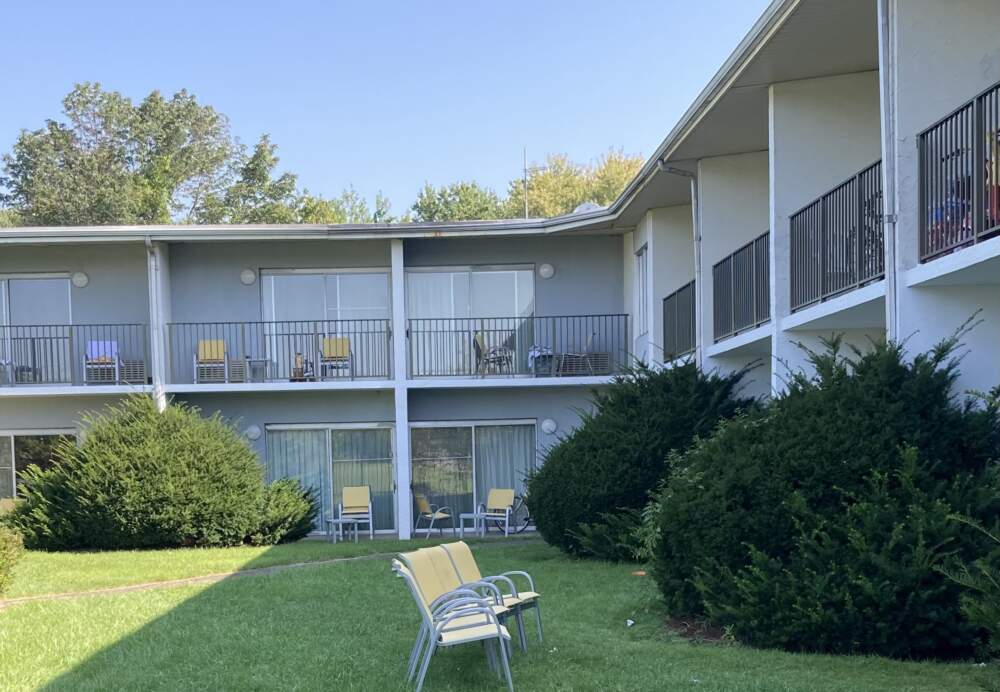Advertisement
As need for emergency shelters in Mass. spikes, so do costs
Resume
The number of households in Massachusetts’ family shelter system has risen dramatically this year. And so has the price tag.
In the state budget passed this summer, lawmakers allocated a record $325 million to the system, and Gov. Maura Healey has already asked for more.
In August alone, state spending reached an estimated $45 million for emergency assistance to homeless families, a cost of about $7,500 per family for the month.
Here is a breakdown of where that money is going, how the state’s unique shelter system fits into the commonwealth’s overall budget and what’s driving the escalating cost.
How much does Massachusetts spend annually on family shelters?
For the past decade or so, taxpayers have spent between $100 million and $200 million a year on the emergency shelter program. This year, lawmakers allocated more than $325 million, an all-time high. But the Healey administration has estimated that at its current growth rate, the system will run out of money in January.
With a supplemental budget proposal, Healey is requesting an additional $250 million to expand the number of shelter units and help school districts absorb new students, among other expenditures.
While it is not unusual for the family shelter system to receive supplemental funding, the combined total for the current fiscal year would eclipse any other year on record.
Under a 1983 law, Massachusetts is required to provide shelter for eligible families. So, while most states and cities fund family shelters through donations and grants provided to non-profits, the system in Massachusetts is funded by taxpayers.
Will spending on family shelters break the bank?
In a word, no. Spending on the family shelter system is growing, but it’s still a fraction of the state’s overall budget.
Massachusetts' annual spending is nearly $56 billion. A big part of that — roughly $22 billion — goes toward MassHealth, the state health insurance program for low-income residents, children and people with disabilities. However, a good portion of this is covered by federal funding. Another big ticket item is K-12 education, which accounts for about $6 billion of the state's budget but also receives federal funding.
"Right now on emergency assistance shelter, every dollar we spend is a dollar that we are spending out of our own [state] resources," said Doug Howgate, president of the business-backed Massachusetts Taxpayers Foundation.
However, he said, the state is not currently funding family shelters at the expense of other programs or out of a rainy day fund, or even looking at raising taxes.
"That's not where we're at here," said Howgate. "I think the state continues to be in a relatively strong fiscal condition."
Instead, Howgate said the key question is what to do if shelter spending continues to grow.
“I think everyone is still working through what those plan B's are,” he said. “What is very, very important is that we are putting as much pressure as possible on our partners at the federal level to make sure they are a part of the solution.”
About half the people in the family shelter system are newly arrived immigrants, many of whom don’t have federal work permits. Healey, who has announced a state of emergency in the shelter system, has urged the federal government to provide financial assistance to the state and expedite work authorizations, so newly arrived families can earn money and exit the shelter system.
Are new immigrants driving the increase in shelter spending?
There are two main factors driving the escalating cost of the shelter system.
First, there’s a growing number of families entering the system. The number of families in state-funded shelters has more than doubled this year to over 6,700 families, which constitutes about 22,000 parents and children. Roughly half of the families are newcomers to the state.
However, all families in the system have met the eligibility requirements for shelter, which have become increasingly strict over the years. Advocates emphasize the actual number of homeless families in Massachusetts is likely substantially higher than those qualifying for the shelter system.
The second element driving up spending is families finding it hard to leave shelters. This is partly because of a longtime housing crunch that makes it difficult to secure affordable places to live. Kelly Turley, associate director of the Massachusetts Coalition for the Homeless, said the state’s most recent report on the shelter system showed an average length of stay of a little over a year, or 429 days.
“But the maximum number of days was 3,097,” Turley said. “I remember seeing that and just wanting to cry because that is eight and a half years.”
Some experts expect the average length of stay to increase if immigrants continue waiting months — or longer — to get work permits from the federal government.
As the shelter population grows, are there economies of scale?
Unfortunately, the answer to this question seems to be, no. The cost per family has been growing as the system expands.
This is largely because the state has run out of shelter units and shelter providers. So, Massachusetts now has nearly 3,000 families in overflow hotels and motels, including about 1,000 households in unstaffed hotels and motels. Both cost more than traditional shelter units.
According to the Executive Office of Housing and Livable Communities, the average cost per family for a night in a traditional shelter is $165. For a staffed hotel, that number goes up to $185. And for unstaffed hotel or motel sites, the price tag balloons to $330 per night for each household, which is roughly $9,900 per month.
"The average cost per family for unstaffed hotels is higher because it includes costs for providing food," Noah Bombard, a spokesperson for the office, wrote in an email. While meals are provided to all shelter residents who lack kitchen access, Bombard said the cost is higher in unstaffed hotels where the state must contract separately for food.
The Central Massachusetts Housing Alliance operates 10 shelters for the state, as well as one hotel site. Leah Bradley, the organization's CEO, explained the cost difference stems from more favorable contracts that can be secured for monthly rentals compared to hotels and motels.
“Typically, we're renting a building for a whole month. And so a monthly lease that we've negotiated is gonna be less than paying for hotel rooms night by night,” she said.
In addition to housing, where does the shelter budget go?
The state provides some basic necessities, such as diapers and formula, as well as food if there is no facility where families can cook. At many staffed sites, there are case workers and housing coordinators to help the families find permanent living arrangements and other supports. Other shelter costs can include transportation, translation services and security.
In addition to the shelter system, the state has a number of other programs that help support families in need. One example is food assistance, which receives a mix of state and federal funding. The state also has programs for some medical needs such as a shelter vaccination effort. Earlier this year, the state set up legal services and family welcome centers to help migrants. Plus, of course, there is spending at the city and town level that is not captured in the state budget.
Editor's note: This post has been updated to reflect a clarification from the state Executive Office of Housing and Livable Communities that food is provided for all residents who lack access to kitchens.
This article was originally published on October 02, 2023.
This segment aired on October 2, 2023.
